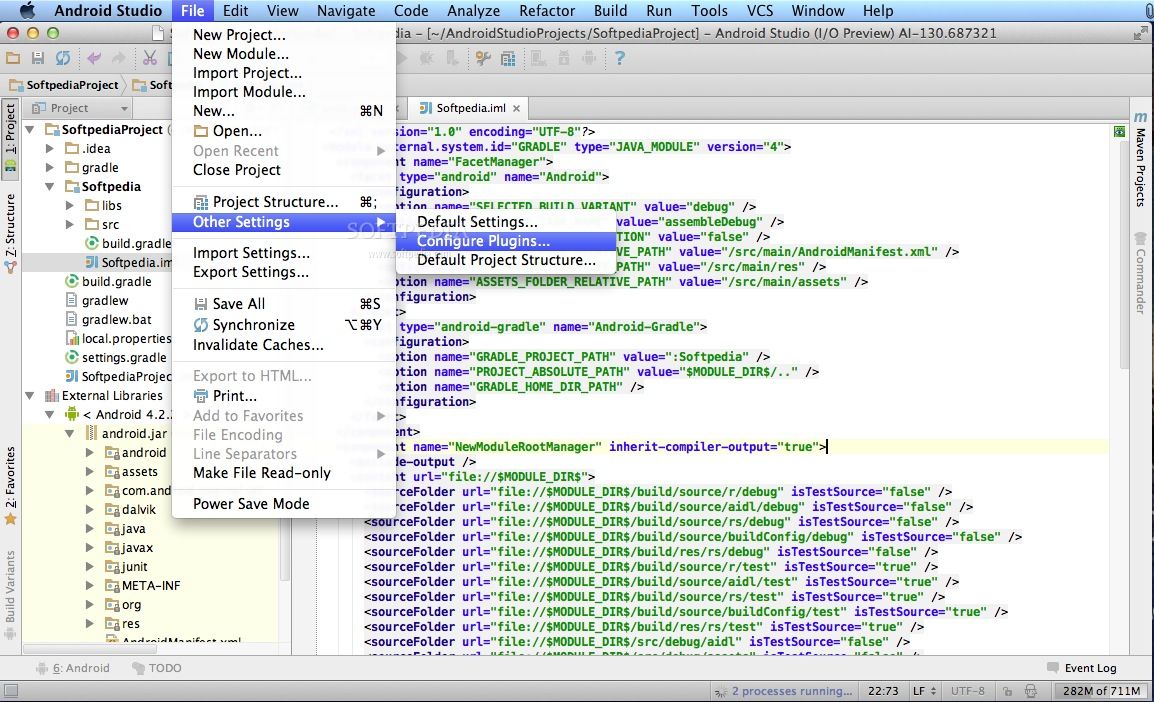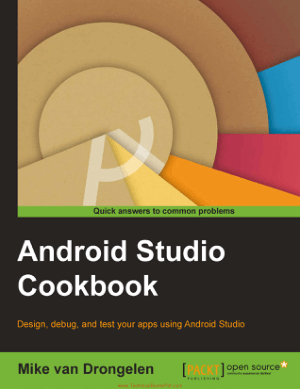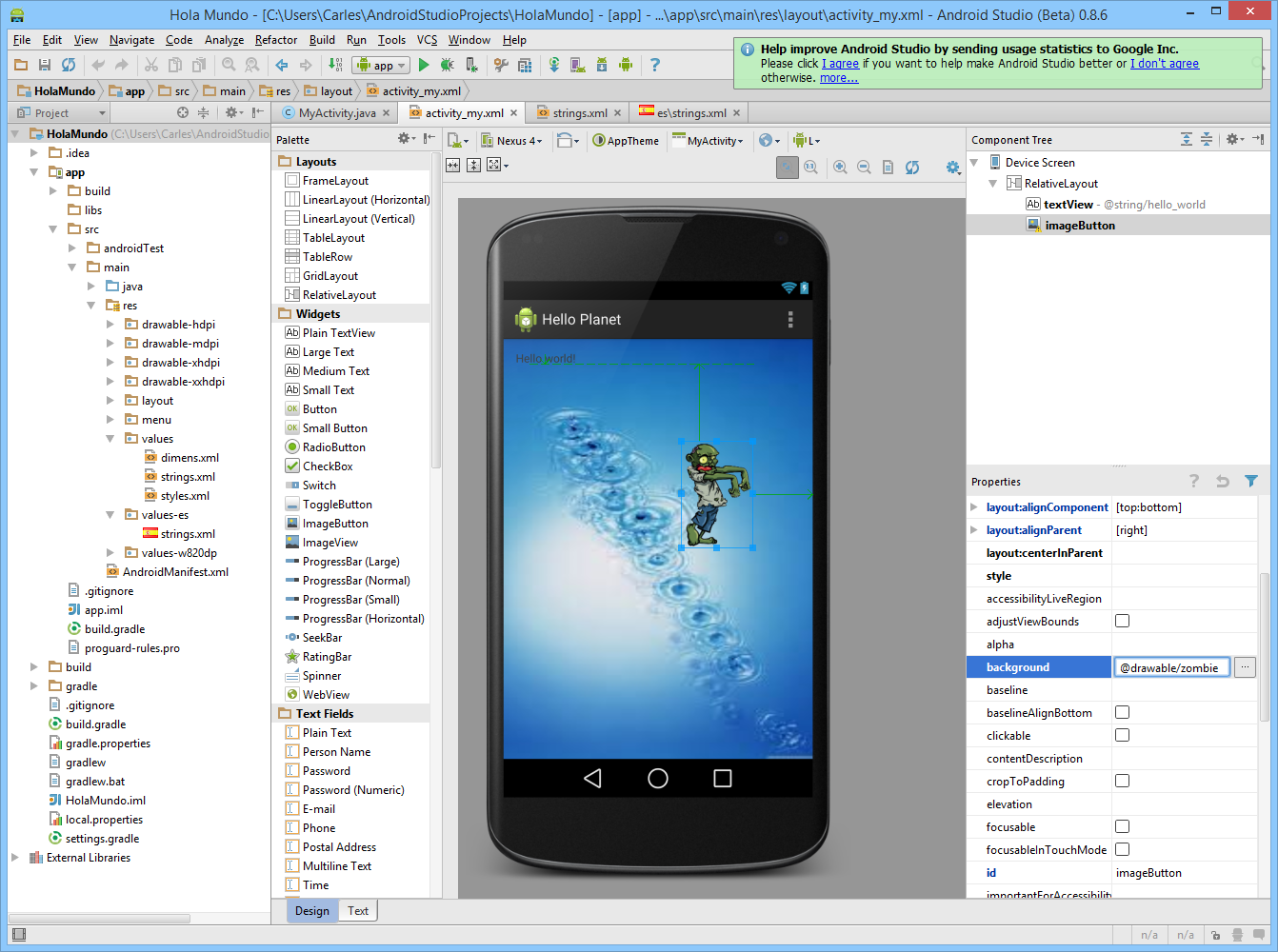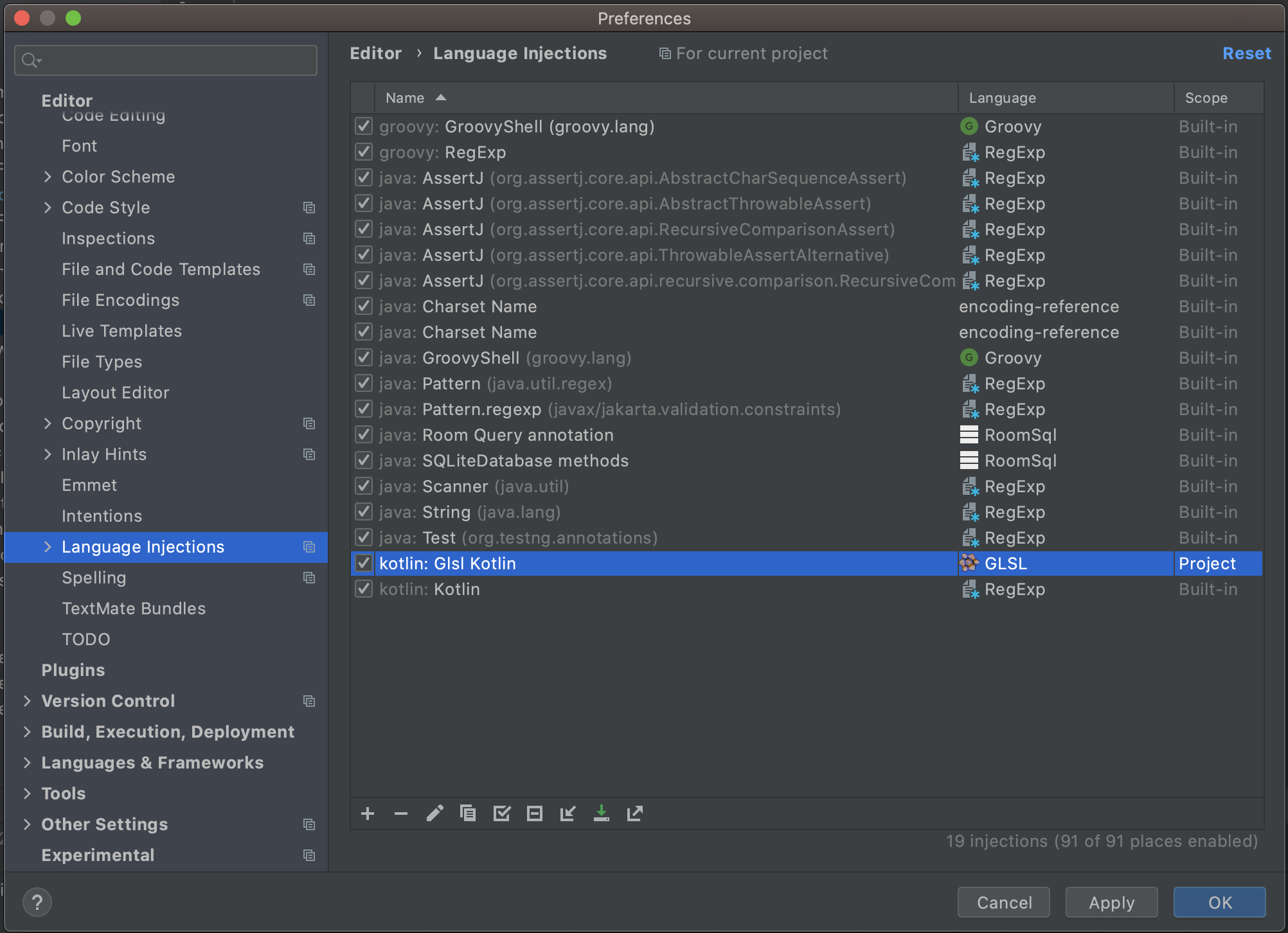

- Android studio language for android#
- Android studio language android#
- Android studio language code#
- Android studio language professional#
C++ is more complicated though, and this option is mostly only going to appeal to large, professional teams. This allows for native coding applications, which can be handy for things like games.
Android studio language android#
C++ - Android Studio also supports C++ with the use of the Java NDK.This may make it slightly less appealing for those hoping to work as developers across numerous projects. It is also now Google’s preferred language of choice, though it is not as widely used outside of Android Studio. It is similar to Java in many ways but is a little easier to get your head around. Kotlin – Kotlin is another official Android language.Java and Android Studio have a steep learning curve, however. It has been an official language longer than Kotlin, and it is also popular outside of Kotlin development for many other purposes.

Android studio language for android#
Android Studio is tailored for Android app development with extensive support for Java and Kotlin, while Visual Studio is a versatile IDE supporting multiple languages and platforms.The languages you might consider learning for Android development include:

In summary, Android Studio and Visual Studio are powerful IDEs with different focuses and target audiences. Visual Studio also has a vast ecosystem of extensions, with the Visual Studio Marketplace offering a wide variety of plugins for different programming languages, frameworks, and integrations. It also supports HTML and CSS editing for web development.Įxtensions and Plugin Ecosystem: Android Studio supports a wide range of plugins and extensions through the Android Studio Plugin Marketplace. Visual Studio, on the other hand, provides XAML-based designers for building UI in platforms such as WPF, UWP, and Xamarin.Forms. It offers drag-and-drop functionality, XML editing, and device-specific UI previews. UI Design and Layout: Android Studio includes a powerful visual editor called the Layout Editor, which allows developers to create, modify, and preview the user interface (UI) of their Android apps.
Android studio language code#
Visual Studio provides a comprehensive suite of tools and services, including version control integration (e.g., Git), testing frameworks, debugging tools, code refactoring, and extensive support for Azure cloud services. It also offers built-in support for Google Cloud services, Firebase, and the Android Profiler for performance analysis. Integrated Tools and Services: Android Studio integrates with various Android-specific tools and services, such as the Android SDK, Android Virtual Device (AVD) Manager for emulators, and Google Play Services. It offers language-specific tools, frameworks, and extensions to enhance productivity for each supported language. Visual Studio, on the other hand, supports a wide range of programming languages, including C#, VB.NET, F#, JavaScript, TypeScript, and many others. It provides features like code completion, linting, and debugging specific to these languages. Language Support: Android Studio is optimized for Java and Kotlin. Visual Studio, on the other hand, is a versatile IDE that supports multiple programming languages and platforms, including Windows, web, cloud, and mobile app development. It provides a rich set of tools, emulators, and libraries tailored for Android development. Platform and Target Audience: Android Studio is specifically designed for developing Android applications.

Let's explore the key differences between Android Studio and Visual Studio: Android Studio vs Visual Studio: What are the differences?Īndroid Studio and Visual Studio are integrated development environments (IDEs) used for application development.


 0 kommentar(er)
0 kommentar(er)
